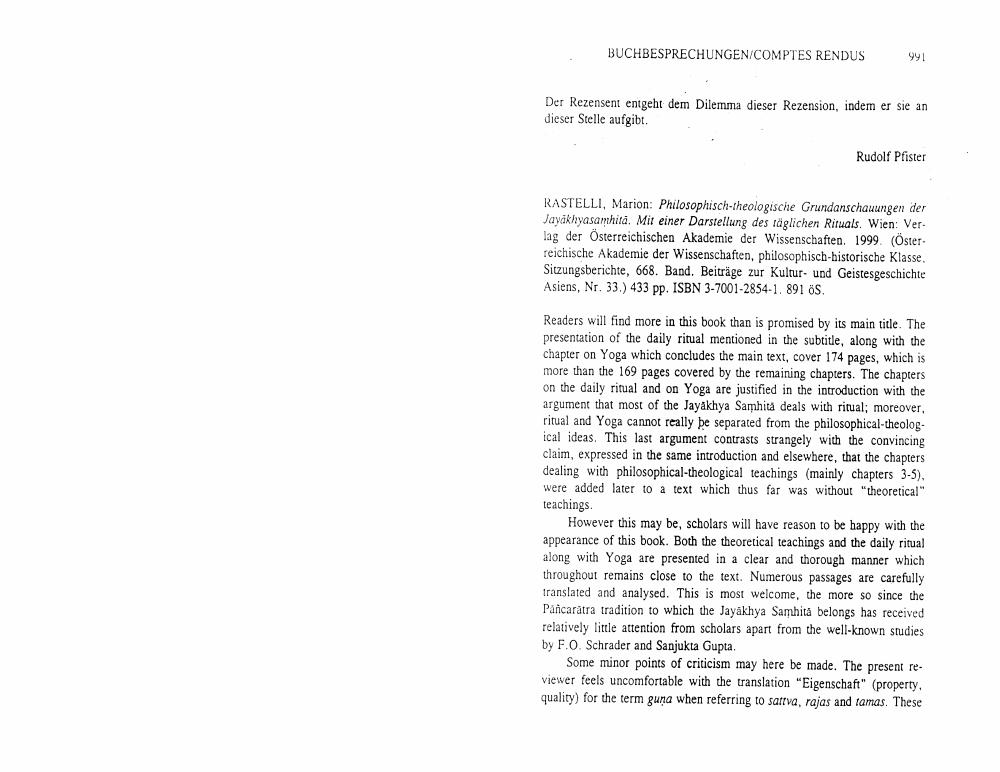________________
BUCHBESPRECHUNGEN/COMPTES RENDUS
991
Der Rezensent entgeht dem Dilemma dieser Rezension, indem er sie an dieser Stelle aufgibt.
Rudolf Pfister
RASTELLI, Marion: Philosophisch-theologische Grundanschauungen der Jayakhyasamhita. Mit einer Darstellung des täglichen Rituals. Wien: Verlag der Österreichischen Akademie der Wissenschaften. 1999. (Österreichische Akademie der Wissenschaften, philosophisch-historische Klasse. Sitzungsberichte, 668. Band. Beiträge zur Kultur- und Geistesgeschichte Asiens, Nr. 33.) 433 pp. ISBN 3-7001-2854-1. 891 öS.
Readers will find more in this book than is promised by its main title. The presentation of the daily ritual mentioned in the subtitle, along with the chapter on Yoga which concludes the main text, cover 174 pages, which is more than the 169 pages covered by the remaining chapters. The chapters on the daily ritual and on Yoga are justified in the introduction with the argument that most of the Jayakhya Samhita deals with ritual; moreover, ritual and Yoga cannot really be separated from the philosophical-theological ideas. This last argument contrasts strangely with the convincing claim, expressed in the same introduction and elsewhere, that the chapters dealing with philosophical-theological teachings (mainly chapters 3-5). were added later to a text which thus far was without "theoretical" teachings.
However this may be, scholars will have reason to be happy with the appearance of this book. Both the theoretical teachings and the daily ritual along with Yoga are presented in a clear and thorough manner which throughout remains close to the text. Numerous passages are carefully translated and analysed. This is most welcome, the more so since the Pañcaratra tradition to which the Jayakhya Samhita belongs has received relatively little attention from scholars apart from the well-known studies by F.O. Schrader and Sanjukta Gupta.
Some minor points of criticism may here be made. The present reviewer feels uncomfortable with the translation "Eigenschaft" (property. quality) for the term guna when referring to sattva, rajas and tamas. These




